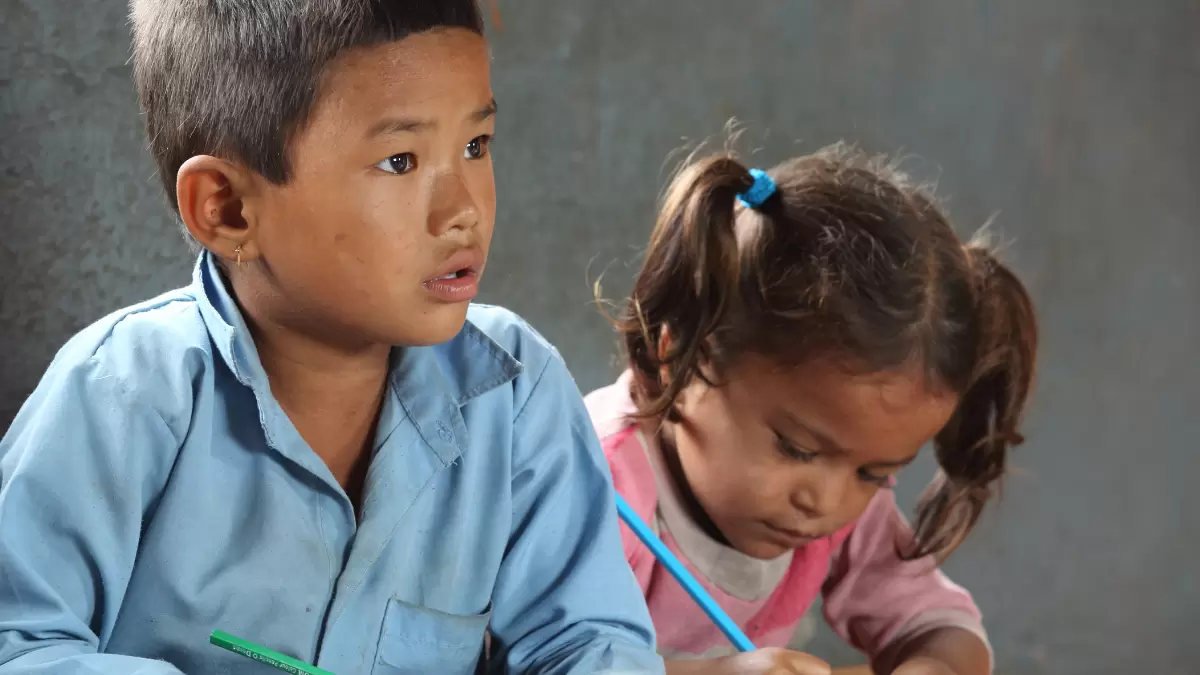Kailash Foundation, a non-governmental organization dedicated to supporting underprivileged communities, has been actively engaged in educational initiatives across Nepal. Our efforts focus on providing quality education to children, particularly in rural areas, to empower the next generation and break the cycle of poverty.
What is an Educational Campaign?
An educational campaign is designed to inform and educate a specific audience about a particular issue, topic, whose aim is to raise awareness, change elevations, and influence behavior through various forms of communication. Educational campaigns are often used in public health, environmental issues, social justice, and civic engagement to promote knowledge and encourage positive action within communities.
The success of an educational campaign depends on clear messaging, a well-defined target audience, and effective delivery methods. Educational campaigns can be led by governments, non-profit organizations, schools, or advocacy groups, and they often rely on evidence-based information to support their message. Ultimately, the main aim of the educational campaign is to empower people with the knowledge they need to make informed decisions and contribute to meaningful change.
Why is an education campaign needed?
An education campaign is essential because it raises awareness and provides critical information to the public about important issues such as health, the environment, or social justice. Many problems in society persist simply because people lack the knowledge and understanding needed to make informed decisions. By using targeted message, an education campaign can reach specific audiences, change behaviors, and encourage more responsible choices that lead to positive outcomes for individuals and communities. Moreover, the education campaign helps to counter misinformation and challenge harmful stereotypes or misconceptions. In a world where people are constantly exposed to conflicting information, especially through social media, well-designed education efforts can provide clarity and promote evidence-based thinking.
Roles of an education campaign in Nepal
An education campaign in Nepal plays an important role in addressing various social, economic, and developmental challenges. Here are some key roles such campaigns serve:
1: Promoting Literacy and Access to Education
Education campaigns raise awareness about the importance of education, especially in rural and marginalized communities, helping increase school enrollment and reduce dropout rates.
2: Encouraging Gender Equality
Many campaigns focus on empowering girls and women through education, challenging traditional gender roles and promoting equal opportunity.
3: Raising Awareness on Social Issue
Campaigns often include content about health, hygiene, environmental conservation, child rights, and anti-trafficking, helping create informed citizens.
4: Improving Quality of Education
Through teacher training, curriculum engagement, education campaigns can enhance teaching standards and learning outcomes.
5: Supporting Government and NGO Initiatives
Campaign often collaborate with a local and international organization to implement national education policies, like “Education for all” or the “School Sector Development Plan”.
The Problem
Educational campaigns in Nepal face several challenges that hinder their effectiveness. One major issue is the lack of infrastructure and resources, especially in rural and remote areas. Many schools lack basic facilities such as proper classrooms, learning materials and trained teachers. This makes it difficult for educational campaigns to reach and impact all sections of society equally. Additionally, language barriers, geographical obstacle, and poor connectivity further isolate certain communities, reducing the overall effectiveness of nationwide educational efforts.
Another significant problem is the socio-economic and cultural barriers that limit access to education. Many families prioritize immediate income over long-term educational benefits, leading to high dropout rates among children, especially girls. Traditional beliefs, early marriage, and gender inequality also play a role in keeping children out of school. Despite various government and NGO-led campaigns, these deep-rooted issues continue to obstruct progress. For educational campaigns to succeed, they must be tailored to address both structural and cultural challenges simultaneously.
Key Educational Initiatives by Kailash Foundation
1: Support for Orphaned and Vulnerable Children
Kailash Foundation offers both shelter and food for the orphaned children. In addition to basic needs, the foundation ensures that these children receive quality education, aiming to make them independent and self-reliant in the future.
2: Partnership with Local Schools
We will collaborate with private schools in Kathmandu. Kailash Foundation enrolls children from primary to high school levels. This partnership allows children to receive a comprehensive traditional education, forming friendship and bond with their peers’ outside the foundation.
3: Extracurricular Activities and Cultural Engagement
Beyond academic, Kailash Foundation emphasizes the importance of extracurricular activities and cultural engagement. We organize various events and programs that allow children to explore their interests, develop new skills, and connect with their cultural heritage.
4: Infrastructure Development for Education
Recognizing the importance of a conductive learning environment, Kailash Foundation has been involved in building and upgrading education infrastructure. We initiated a school-building project in remote areas, ensuring that children have access to proper facilities for learning. This aims to improve the quality of education and make it more accessible to children in underserved regions.
Conclusions
Though these multifaceted educational initiatives, Kailash Foundation is making significant strides in transforming the lives of children in Nepal. By providing access to quality education, fostering cultural engagement, and promoting gender equality, Kailash Foundation is laying the groundwork for a brighter and more equitable future for the next generation.

